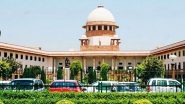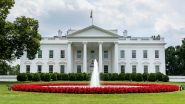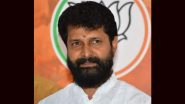Jerusalem, Dec 20 (AP) A journalists' association said Friday two reporters working for Kurdish media outlets have been killed in clashes between Syrian Kurdish militia and Turkish-backed fighters in northern Syria. Fighting in parts of Syria continues despite the fall of President Bashar Assad.
Elsewhere in Syria, the transition following the government's fall has been smooth so far, although it's been less than two weeks since Assad was ousted by a lightning rebel advance on the capital, Damascus.
The country is home to diverse sects, and there is ongoing fear and uncertainty among minority groups, including Christians, regarding their rights and safety under the main rebel group, Hayat Tahrir al-Sham, once an affiliate of al-Qaida.
Here's the latest:
Gaza officials say 77 people have died in the past 24 hours
The Health Ministry in the Gaza Strip said Friday that 77 people have died and 174 others arrived at hospitals during the past 24 hours as a result of the ongoing conflict in the territory.
The latest toll includes five children and 12 others who were killed in an Israeli airstrike on Shaaban Rais School sheltering displaced people on Thursday, as well as five people who were killed in Maghazi refugee camp in Deir al-Balah early Thursday.
Officials said some people remained under rubble and on roads where ambulance and civil defence crew could not reach them.
The ministry said the latest death toll brings the total of deaths in Gaza to 45,206 since Hamas attacked Israel on October 7, 2023 and triggered a 14-month Israeli offensive. Local health officials do not distinguish between civilians and combatants, but have said more than half of the fatalities are women and children.
Turkiye's president suggests Turkiye could intervene in northern Syria
ANKARA, Turkiye — Turkish President Recep Tayyip Erdogan has suggested that Turkiye could intervene in northern Syria to eliminate what he said are threats to its security posed by Syrian Kurdish groups.
His statement to a group of journalists late Thursday comes amid reports of fighting between Turkish-backed fighters and the US-backed, Kurdish-led force in northern Syria, near the border town of Kobani and the Tishrin dam on the Euphrates river.
“We will show that the time has come to neutralise the terrorist organisations present in Syria,” Erdogan said, according to a transcript of his remarks that was made available on Friday. “We will do this to prevent any further threats coming from the south of our borders.”
Turkiye considers the US-backed Syrian Democratic Forces, SDF, as a terrorist organisation because its main component is a group aligned to the banned Kurdistan Workers' Party, or PKK. Earlier this week, the SDF said US-led mediation efforts failed to reach a permanent truce in Syria's north.
“The end of the road for the terrorist organisations is near,” Erdogan said. “There is no room for terrorists in the future of the region. The shelf life of the PKK terrorist organisation and its extensions has run out.”
Erdogan said by securing the border area in Syria, Turkiye would also prevent the PKK from recruiting militants.
The Turkish leader meanwhile, welcomed the fact that many countries were establishing contact with Syria's new leaders, saying it was “a sign of trust” in the new administration. He said Turkiye would assist the country to establish new “state structures.”
Erdogan added that Turkish Foreign Minister Hakan Fidan would travel to Syria soon.
US delegation in Damascus
DAMASCUS — A delegation of US officials headed by Assistant Secretary of State for Near Eastern Affairs Barbara Leaf left the Four Seasons Hotel in Damascus Friday afternoon without making any statement to waiting journalists. A statement was expected later in the afternoon.
Leaf, former special envoy for Syria Daniel Rubinstein and the Biden administration's chief envoy for hostage negotiations, Roger Carstens, made the trip for talks with Syria's interim leaders, the State Department said early Friday.
The first US diplomats to visit Syria since President Bashar Assad's ouster nearly two weeks ago — and the first to formally visit Syria in more than a decade since the US shuttered its embassy in Damascus in 2012 — also came to seek information on the whereabouts of missing American journalist Austin Tice.
The State Department said in a statement that the team would be “engaging directly with the Syrian people, including members of civil society, activists, members of different communities, and other Syrian voices.” Members of the civil defense group known as the White Helmets were seen leaving the hotel along with the delegation.
IOM head: Large-scale return of Syrians would 'overwhelm' Syria
GENEVA — The head of the UN migration agency says that large-scale returns of Syrians to their homeland at this stage would “overwhelm” the country.
Syria's civil war has displaced millions of people since 2011. The fall of Bashar Assad's government earlier this month has fuelled talk in some of the countries where they went of the refugees' return.
Amy Pope, the director-general of the International Organisation for Migration, told reporters Friday after returning from a visit to Syria that her agency's message to countries in Europe and elsewhere is that “this is not the moment to talk about large-scale returns.”
Pope said that communities “are just not ready to absorb the people who are displaced and would come back.” She argued that if “overwhelming numbers” of people return, "it will overwhelm the country and it could risk more disruptive impact on a very fragile peace process.”
Pope said it's right to support individuals on a case-by-case basis who want to go home or know that their place of origin is safe, but that efforts now need to focus on the humanitarian situation, recovery and rebuilding.
Swedish government ending 'core support' for the UN relief agency for Palestinians
STOCKHOLM — The Swedish government says it is ending its “core support” for the United Nations relief agency for Palestinians.
The government said Friday that 800 million kronor (USD 72.4 million) being allocated for the humanitarian crisis in Gaza and the region next year will go through the channels of the Swedish International Development Cooperation Agency and the government's support for other agencies such as the World Food Program, the UN Children's Fund, the UN Population Fund and the International Committee of the Red Cross.
In October, Israel's parliament approved legislation banning UNRWA's activities in the Palestinian territories, a measure that was to take effect in 90 days.
Sweden's minister for international development cooperation and foreign trade, Benjamin Dousa, posted on X that the Israeli decision will make much of UNRWA's work difficult or impossible.
He said that Swedish aid must arrive and not get stuck in a bank account en route, and that the Israeli parliament's decision forces it to pass on support to other organisations. Dousa added that UNRWA is undergoing a crisis of confidence.
Sweden provided 451 million kronor to UNRWA this year. (AP)
(This is an unedited and auto-generated story from Syndicated News feed, LatestLY Staff may not have modified or edited the content body)













 Quickly
Quickly
















